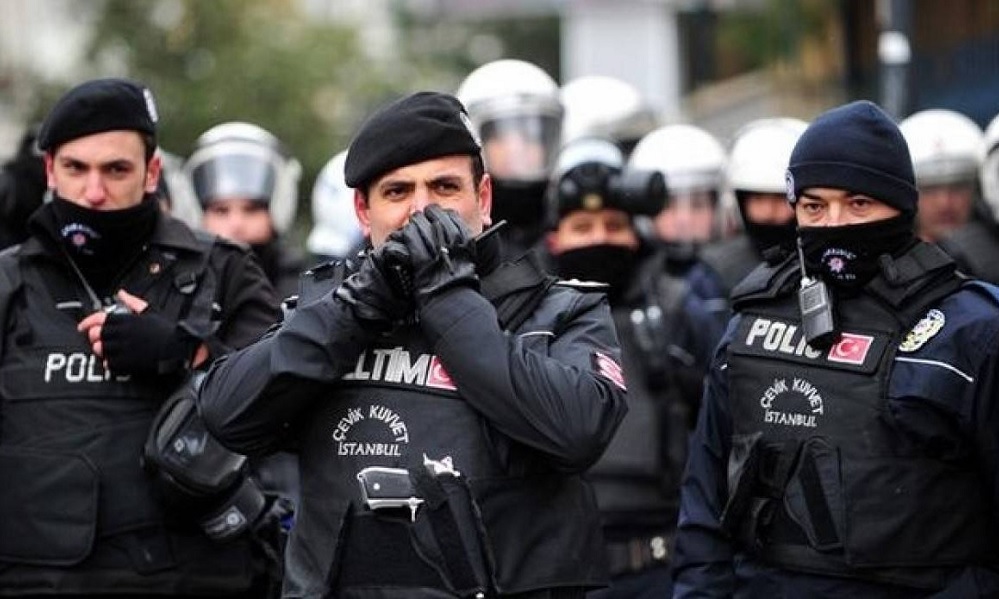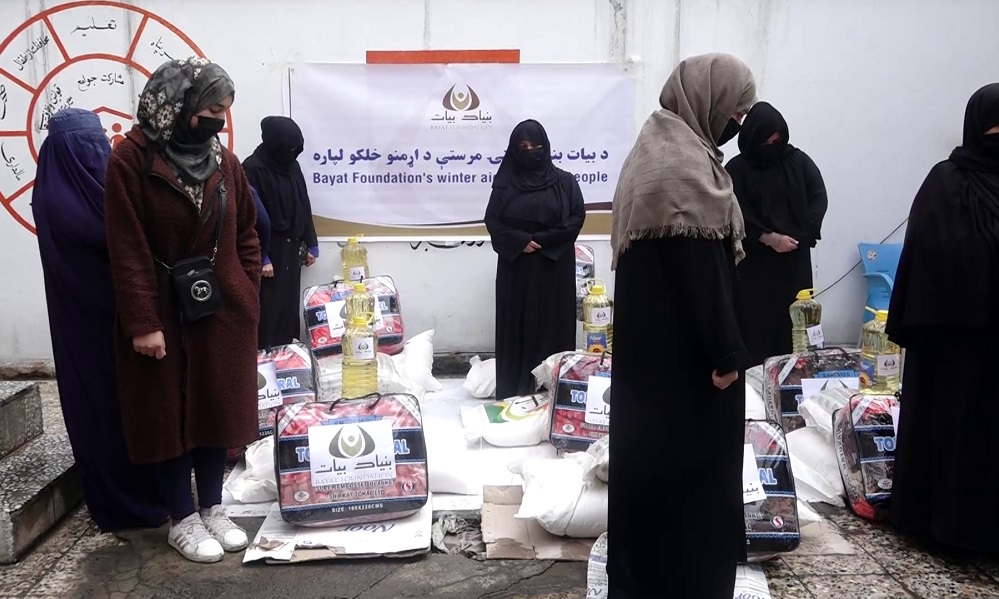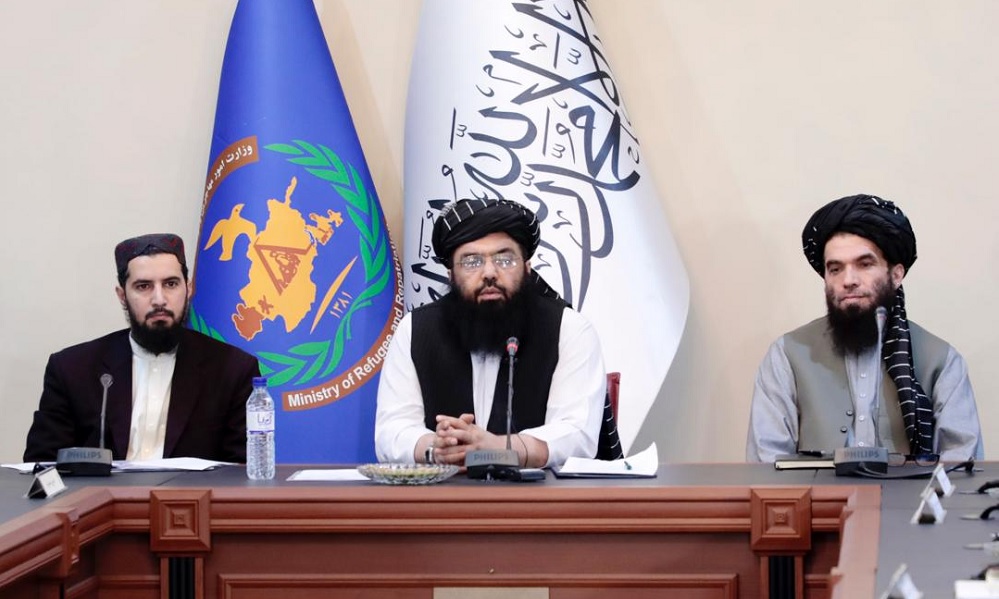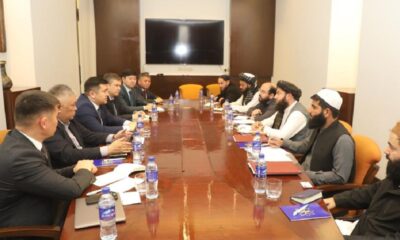Latest News
U.S. grants licenses for more aid flow to Afghanistan

The United States on Friday further paved the way for aid to flow to Afghanistan despite U.S. sanctions on the Islamic Emirate of Afghanistan (IEA), issuing general licenses amid concerns that Washington’s punitive measures could compound an unfolding humanitarian crisis.
The U.S. Treasury Department said it issued two general licenses, one allowing the U.S. government, NGOs and certain international organizations, including the United Nations, to engage in transactions with the IEA or Haqqani Network – both under sanctions – that are necessary to provide humanitarian assistance.
The second license authorizes certain transactions related to the export and re-export of food, medicine and other items.
“Treasury is committed to facilitating the flow of humanitarian assistance to the people of Afghanistan and other activities that support their basic human needs,” Andrea Gacki, director of the U.S. Treasury’s Office of Foreign Assets Control, said in the statement.
She added that Washington will continue to work with financial institutions, NGOs and international organizations to ease the flow of agricultural goods, medicine and other resources while upholding sanctions on the IEA, Haqqani Network and others.
The United Nations said that at the start of the year more than 18 million people – about half of Afghanistan’s population – require aid amid the second drought in four years.
U.N. Secretary-General Antonio Guterres said last week that Afghanistan is on “the verge of a dramatic humanitarian disaster” and has decided to engage the IEA in order to help the country’s people.
U.S. President Joe Biden’s administration has said it is committed to allowing humanitarian work in Afghanistan to continue despite Washington listing the IEA as a Specially Designated Global Terrorist group.
The sanctions freeze any U.S. assets of the IEA and bar Americans from dealing with them, including the contribution of funds, goods or services.
The licenses allow NGOs and foreign financial institutions to continue humanitarian assistance such as the delivery of food, shelter, medicine and medical services, including COVID-19 assistance, a Treasury spokesperson said.
“We have not reduced sanctions pressure on Taliban (IEA) leaders or the significant restrictions on their access to the international financial system,” the spokesperson said.
Latest News
Turkish intelligence captures a Daesh member near the Durand Line

Turkish intelligence agents have captured a senior member of Daesh near the Durand Line, reportedly preventing planned suicide attacks in Turkey and other countries, according to Turkey’s state-run Anadolu Agency on Monday.
The suspect, identified as Mehmet Goren, is a Turkish citizen. He was apprehended during a covert operation and transferred to Turkey. Details on the timing of the operation or the involvement of Afghan and Pakistani authorities were not disclosed.
According to the report, Goren had risen through the ranks of Daesh and was allegedly tasked with carrying out suicide bombings in Turkey, Pakistan, Afghanistan, and Europe.
Daesh has a history of deadly attacks in Turkey, including the January 1, 2017 shooting at an Istanbul nightclub that killed 39 people.
Anadolu Agency reported that Goren’s arrest also provided intelligence on the group’s recruitment strategies and planned activities.
Latest News
Dozens of needy families in Kabul receive winter aid from Bayat Foundation

Dozens of needy families in Kabul’s fifth district have received essential winter assistance from the Bayat Foundation, as part of ongoing efforts to ease hardship during the cold season and worsening economic conditions.
According to foundation officials, the aid package includes staple food items such as flour, rice, and cooking oil, along with warm blankets to help families cope with freezing temperatures. Haji Mohammad Ismail, Deputy Head of Bayat Foundation, said the distribution began in Kabul and will soon be expanded to other provinces.
“Our assistance includes flour, rice, cooking oil, and blankets,” Ismail said. “Today, we started distributing these items in Kabul’s fifth district, and God willing, the aid will reach other provinces in the near future.”
Afghanistan continues to face widespread poverty, unemployment, and food insecurity, with many families struggling to meet basic needs, particularly during winter when access to work and heating becomes more difficult.Humanitarian organizations and charitable foundations have stepped up relief efforts to support those most affected.
Beneficiaries welcomed the assistance, describing it as a lifeline. “May God bless you for helping the poor. We had nothing and no work,” said one recipient. Another added, “Thank you for your help. Our flour was almost finished.”
Bayat Foundation officials stressed that winter aid distributions will continue in Kabul and other provinces in the coming days, as part of their broader commitment to supporting needy families across the country.
Latest News
Nearly seven million Afghan refugees return home since Islamic Emirate’s takeover

Since the Islamic Emirate came to power, approximately 6.8 million Afghans have returned home, either voluntarily or forcibly, from neighboring countries and other nations, according to the Minister of Refugees and Repatriation.
Mawlawi Abdul Kabir, speaking at a meeting on finalizing a draft plan for a permanent migration solution in Afghanistan, added that 1.3 million Afghans have been internally displaced due to natural disasters during the same period.
With winter approaching, widespread poverty and severe cold are threatening thousands of lives. Meanwhile, the forced expulsion of Afghan migrants from neighboring countries, particularly Iran and Pakistan, continues.
The Islamic Emirate has repeatedly urged neighboring states to allow migrants to return voluntarily. According to UNHCR, over two million Afghans have returned from Iran and Pakistan since the start of 2025.
-

 Latest News2 days ago
Latest News2 days agoAfghanistan signs 30-year deal for marble mining in Daikundi
-

 Latest News4 days ago
Latest News4 days agoAfghan border forces prevent illegal entry of hundreds into Iran
-

 Latest News3 days ago
Latest News3 days agoPakistan summons Afghan diplomat over deadly attack in North Waziristan
-

 Latest News2 days ago
Latest News2 days agoAfghan health minister calls for medical cooperation between Kabul and New Delhi
-

 Latest News4 days ago
Latest News4 days agoJapan allocates nearly $20 million in humanitarian aid for Afghanistan
-

 Latest News3 days ago
Latest News3 days agoKarzai urges reopening of girls’ schools and universities for Afghanistan’s bright future
-

 Health5 days ago
Health5 days agoAfghanistan seeks India’s support in standardizing traditional medicine
-

 Business5 days ago
Business5 days agoAfghanistan-Kazakhstan banking ties discussed in Kabul meeting
























